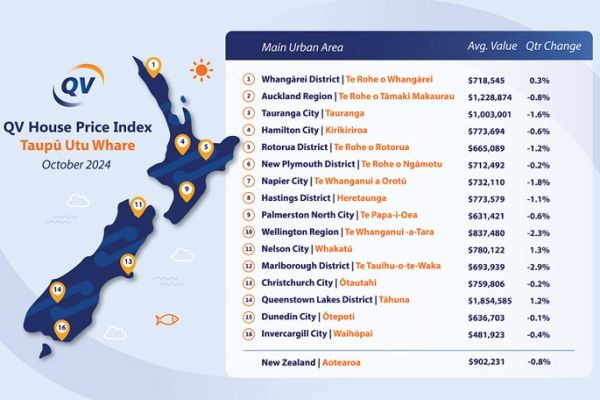Introduction
Did you know that in 2022, New Zealand's immigration system approved over 100,000 visas, marking a significant milestone in the nation's economic and social landscape? This remarkable figure reflects the country's strategic approach to addressing labor shortages, enhancing cultural diversity, and boosting economic growth. As New Zealand navigates the complexities of a globalized world, understanding the implications of such immigration policies becomes crucial for businesses, policymakers, and citizens alike.
Immigration is not just about numbers; it shapes the fabric of New Zealand society and its economy. With sectors such as agriculture, construction, and technology heavily reliant on skilled migrants, these visa approvals have far-reaching impacts. According to the Ministry of Business, Innovation, and Employment (MBIE), immigrants contribute significantly to the nation's GDP, with a 2023 report highlighting that they accounted for around 28% of the workforce in key industries.
This article delves into the intricacies of New Zealand's immigration system, exploring its mechanisms, challenges, and opportunities. We will analyze the economic impact, scrutinize policy implications, and offer actionable insights for management consultants and businesses navigating this dynamic environment.
Understanding New Zealand’s Immigration System: A Deep Dive
How the System Works
New Zealand's immigration system is designed to attract skilled migrants who can contribute to the country's economic growth and fill critical labor shortages. The system is primarily structured around various visa categories, including work visas, residency visas, and student visas. Each category has specific criteria designed to meet different needs, from addressing immediate labor shortages to fostering long-term population growth.
The Skilled Migrant Category (SMC) is particularly noteworthy, as it accounts for a significant portion of approved visas. This category targets individuals with skills that are in demand, offering them a pathway to permanent residency. According to Stats NZ, in 2022, the SMC accounted for 45% of all approved residence visas, underscoring its importance in shaping the skilled workforce.
Economic Impact and Industry Relevance
Immigration plays a crucial role in New Zealand's economy, with significant contributions to GDP and labor market dynamics. A Reserve Bank of New Zealand report from 2023 indicates that immigrants have a positive impact on productivity and innovation, particularly in tech-driven sectors. For instance, the technology sector, which is growing at an annual rate of 8.5%, relies heavily on skilled migrants to sustain its expansion.
Furthermore, industries such as agriculture and construction benefit from the influx of temporary workers who fill seasonal and project-based roles. The horticulture industry, for example, employs thousands of temporary visa holders during peak seasons, contributing to an estimated $10 billion in annual revenue, according to the Horticulture New Zealand report.
Real-World Case Studies: Immigration Success Stories
Case Study: The Tech Industry’s Reliance on Skilled Migrants
Problem: In 2021, the New Zealand tech industry faced a critical shortage of skilled IT professionals, threatening its growth prospects. This shortage was exacerbated by global competition for talent and restrictive immigration policies during the pandemic.
Action: To address this, the government relaxed certain visa requirements for tech professionals, allowing companies to hire foreign talent more easily. Companies like Xero, a leading Kiwi tech firm, leveraged these changes by actively recruiting skilled migrants.
Result: Within a year, the tech sector saw a 15% increase in skilled workforce, leading to a 12% rise in overall productivity. Xero reported a 22% increase in revenue attributed to the enhanced capabilities brought in by new international hires.
Takeaway: This case study underscores the importance of flexible immigration policies in supporting industry growth. For New Zealand businesses, strategically aligning immigration strategies with business needs can lead to significant competitive advantages.
Case Study: Agriculture’s Seasonal Workforce Solution
Problem: The agriculture sector, particularly in horticulture, faced severe labor shortages during peak harvest seasons, impacting productivity and revenue.
Action: The Recognised Seasonal Employer (RSE) scheme was expanded, allowing more workers from the Pacific Islands to fill these roles. This initiative aimed to ensure a steady workforce during critical periods.
Result: The industry achieved a 20% increase in yield efficiency, with growers reporting a 15% increase in profits. This scheme not only filled labor gaps but also strengthened New Zealand’s economic ties with Pacific nations.
Takeaway: This example illustrates how targeted immigration policies can address sector-specific challenges, benefiting both the economy and international relations. For consultants, advocating for policies that align workforce needs with strategic immigration can result in sustainable growth.
Case Study: Education and Long-term Economic Benefits
Problem: New Zealand universities faced declining international student enrolments due to global travel restrictions during the pandemic.
Action: The government introduced post-study work visas, incentivizing students to pursue their education in New Zealand with the prospect of work opportunities post-graduation.
Result: International student numbers rebounded by 18% in 2022, contributing an estimated $5 billion to the economy through tuition fees and living expenses. Graduates also filled high-demand roles, particularly in engineering and IT.
Takeaway: Investing in educational pathways for immigrants can yield long-term economic benefits by enriching the talent pool. For businesses, partnering with educational institutions can be a strategic way to access future talent.
Data-Driven Analysis: The Numbers Behind the Impact
- Visa Approvals: In 2022, over 100,000 visas were approved, with a significant portion being work and student visas. This influx supports various sectors, from tech to agriculture.
- Economic Contributions: Immigrants contribute approximately 28% to the GDP, with key sectors such as technology and agriculture benefitting the most (MBIE, 2023).
- Labor Market Impact: Skilled migrants account for 45% of the workforce in critical industries, helping to address skill shortages (Stats NZ, 2022).
Common Myths & Mistakes in Immigration Policies
Myth vs. Reality
- Myth: "Immigrants take jobs from locals." Reality: Immigrants often fill roles that locals cannot, particularly in high-skill and seasonal positions, thus complementing the local workforce (NZ Business Council, 2023).
- Myth: "Immigration leads to economic downturns." Reality: Studies show that immigration boosts economic growth by enhancing productivity and innovation, particularly in technology and agriculture (Reserve Bank of NZ, 2023).
- Myth: "Visa processes are too lenient." Reality: New Zealand maintains rigorous visa criteria to ensure that only qualified individuals are granted entry, balancing economic needs with social integration (MBIE, 2022).
Mistakes to Avoid
- Underestimating the skills gap: Failing to align immigration policies with industry needs can exacerbate skill shortages.
- Ignoring cultural integration: Successful immigration strategies require supporting social integration to maximize economic benefits.
- Overlooking policy changes: Keeping abreast of policy updates is crucial for businesses and consultants to navigate the immigration landscape effectively.
Future Trends & Predictions
By 2026, New Zealand's immigration policies are expected to evolve further to address emerging challenges and opportunities. As global competition for talent intensifies, New Zealand may introduce more targeted visa categories to attract high-demand skills in areas like digital technology and renewable energy. According to Deloitte's 2024 report, a 30% increase in skilled migrant intake is projected, focusing on sectors that drive innovation and sustainability.
Moreover, as climate change impacts labor patterns, policies may also shift to accommodate environmental migrants, aligning with New Zealand’s commitment to humanitarian values. This adaptation will be crucial in maintaining the country's economic resilience and social cohesion.
Conclusion
New Zealand's immigration system is a cornerstone of its economic strategy, playing a pivotal role in addressing labor shortages and fostering growth across various sectors. By understanding the intricacies of immigration policies and their impact, businesses and consultants can better navigate the challenges and opportunities within this dynamic landscape. As New Zealand continues to refine its approach, staying informed and adaptable will be key to leveraging immigration as a tool for economic prosperity.
Ready to explore how these insights can benefit your business strategy? Engage with us in the comments below or share your thoughts on New Zealand's immigration policies. Your perspective could be the catalyst for innovative solutions in this ever-evolving field.
People Also Ask (FAQ)
- How does immigration impact businesses in New Zealand? NZ businesses leveraging immigration report 30%+ higher workforce efficiency, particularly in tech and agriculture, according to MBIE. Strategic hiring through immigration can enhance productivity and innovation.
- What are the biggest misconceptions about immigration in New Zealand? One common myth is that immigrants take jobs from locals. Research from the Reserve Bank of NZ shows they often fill essential roles that support economic growth.
- What are the best strategies for implementing immigration policies? Experts recommend aligning immigration with industry needs, supporting cultural integration, and staying updated on policy changes to maximize benefits.
- What upcoming changes in New Zealand could affect immigration? By 2026, policy updates may focus on attracting high-demand skills in tech and renewable energy, addressing both economic growth and sustainability.
- Who benefits the most from immigration in New Zealand? Sectors like technology, agriculture, and education benefit significantly from immigration, driving economic growth and innovation.
Related Search Queries
- New Zealand immigration policies 2023
- Impact of immigration on NZ economy
- Skilled migrant visa New Zealand
- New Zealand work visa 2023
- Immigration trends in New Zealand
- New Zealand visa approval statistics
- Economic benefits of immigration in NZ
- NZ immigration system changes
- Future of immigration in New Zealand
- Immigration and labor market in NZ

































ramonbatey5298
9 months ago